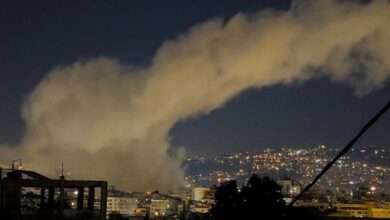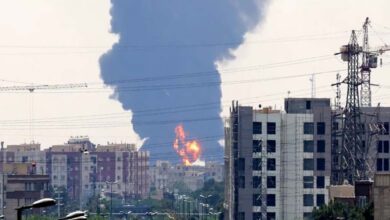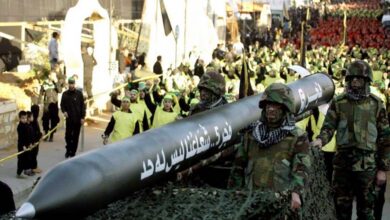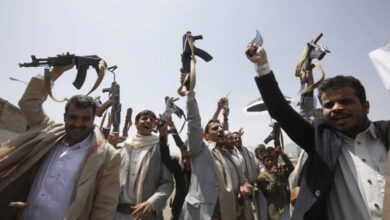Houthis Impose Naval Blockade on Haifa Port
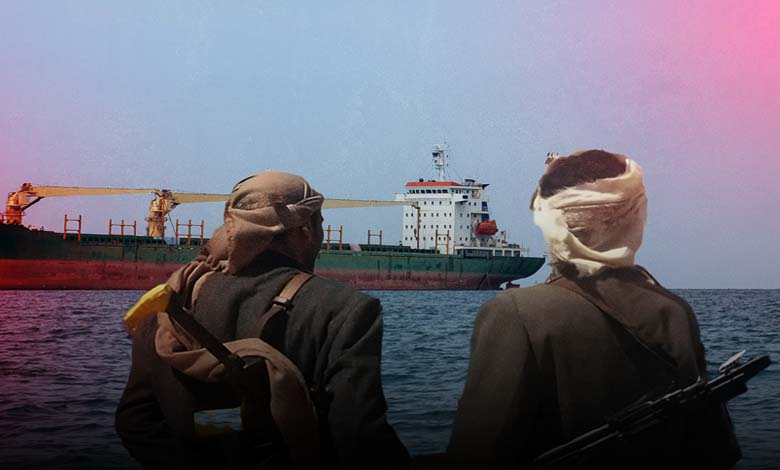
Yemen’s Houthi rebels announced on Monday that they are initiating a naval blockade on Israel’s Haifa port, warning that any vessels docked or headed there are now considered legitimate military targets. The move signals a further escalation by the Iran-backed group, despite Israeli threats, including suggestions to assassinate Houthi leader Abdul-Malik al-Houthi.
-
The ceasefire with the Houthis was not an American concession, but the result of Houthi setbacks
-
New Contacts Between the Muslim Brotherhood and the Houthis… Details
Houthi military spokesperson Yahya Saree declared in a televised statement that the rebels had been ordered to “enforce the leadership’s decision to begin imposing a naval blockade on Haifa port,” and warned, “All companies with vessels currently in this port or en route to it should be aware that the port is now part of our target bank.”
The Houthis claim the action is a response to the Israeli escalation in Gaza, and stated that all military measures — including air and sea navigation bans — will cease if Israel halts its aggression against Gaza and lifts the blockade on the territory.
-
Houthis Hide Their Dead… Funerals Banned and Condolences Forbidden
-
The Demons’ Deal: Houthis Release Al-Qaeda Terrorists to Reinforce Their Frontlines
Earlier Monday, Israeli Prime Minister Benjamin Netanyahu said that Israel plans to take full control of the Gaza Strip, while Palestinian civil defense reported dozens of casualties from Israeli airstrikes.
Since Hamas launched its October 7, 2023 attack on southern Israel, the Houthis have carried out numerous missile and drone attacks against Israel, framing them as support for Gaza’s population. These attacks were temporarily suspended during the ceasefire between Hamas and Israel, but in March, the Houthis threatened to resume them if the U.S. and Israel proceeded with plans to displace Palestinians from Gaza.
-
Houthis Hide Their Dead… Funerals Banned and Condolences Forbidden
-
The Demons’ Deal: Houthis Release Al-Qaeda Terrorists to Reinforce Their Frontlines
In response, the United States launched near-daily military strikes on Houthi positions starting March 15, but U.S. President Donald Trump later ordered a pause in the campaign, saying the Houthis had indicated they did not want further conflict.
Despite the ongoing ceasefire between the Houthis and U.S. forces, the rebels have continued targeting Israel in solidarity with the Palestinians.
Meanwhile, Israeli air forces have launched strikes on key infrastructure in Yemen, including the temporary closure of Sanaa Airport and attacks on several ports and military sites in northern Yemen.
-
The Muslim Brotherhood and the Houthis… Playing Openly After “Under-the-Table” Alliances
-
Houthis Launch Ideological and Military Recruitment Campaign for Students Amid Public Outrage
On Friday, Israel warned it would begin targeting Houthi leadership directly, following strikes on two rebel-held ports. Defense Minister Yoav Gallant warned that Israel would do to Tehran what it did to Hamas in Gaza.
Iran has denied any direct involvement in Houthi attacks on maritime traffic in the Red Sea, despite U.S. warnings to Tehran against continuing arms shipments to the Yemeni group.
Nonetheless, multiple reports confirm that the ballistic missiles and drones used by the Houthis are of Iranian origin, and have been locally enhanced.



